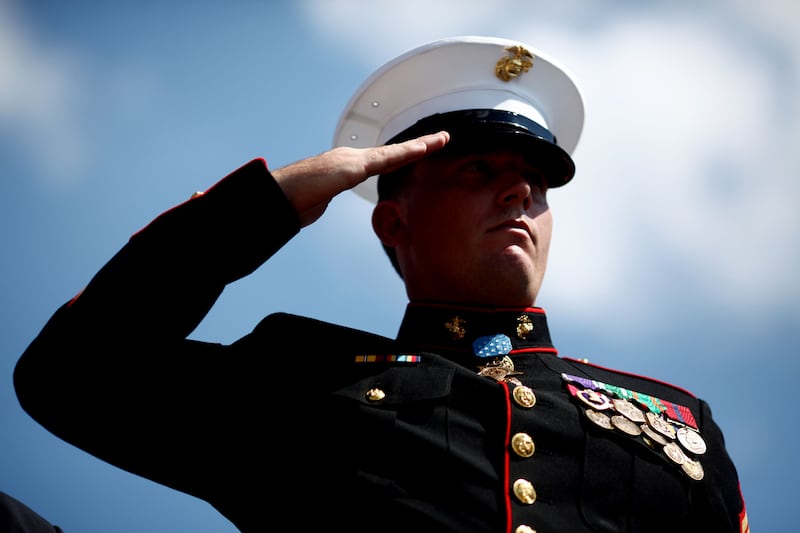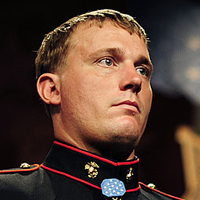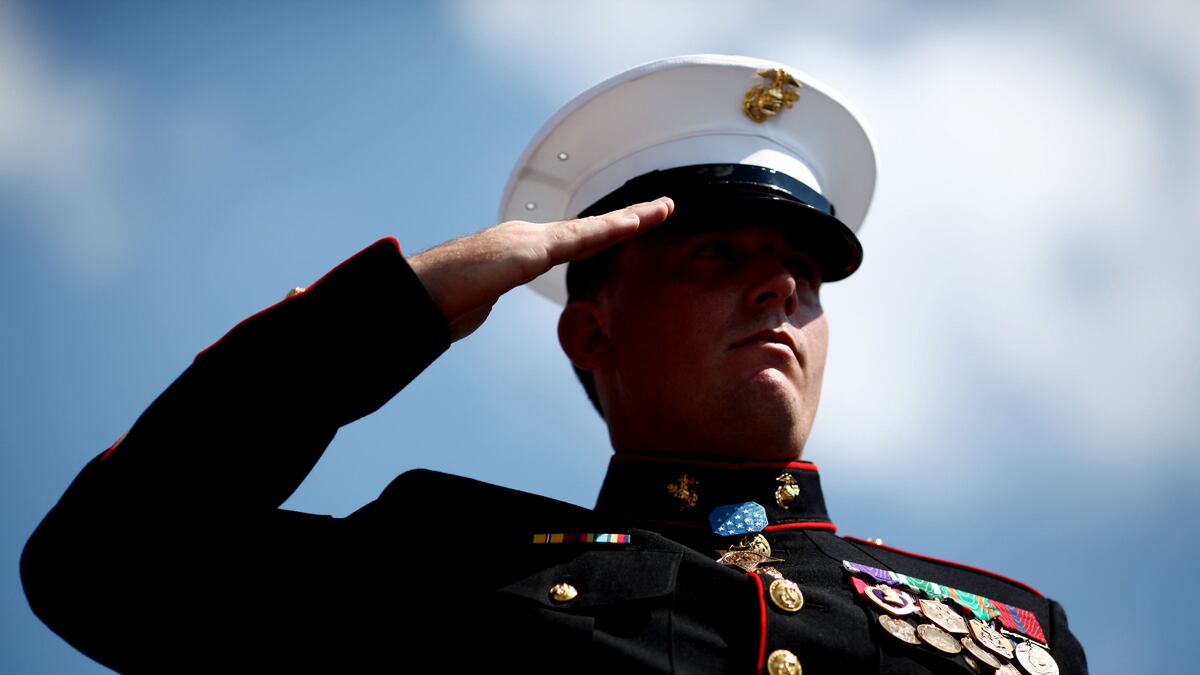Dakota Meyer, a United States Marine Corps veteran who deployed to Iraq and Afghanistan, received the Medal of Honor, the nation’s highest military decoration, for his bravery that saved the lives of U.S. service members and Afghan soldiers facing a savage ambush in eastern Afghanistan. Meyer spoke to Daily Beast editor Harry Siegel on Tuesday about his service, his difficult homecoming—detailed in his book, Into the Fire: A Firsthand Account of the Most Extraordinary Battle in the Afghan War, including a suicide attempt a year after the battle of Ganjgal—and his new project with Toyota and the Chamber of Commerce’s Hiring Our Heroes initiative to create a personal branding guide to help veterans translate their skills into terms that appeal to civilian employers.

I just joined the Marines—it’s just something I wanted to do. It was actually a dare, kind of, a spur-of-the-moment thing. The recruiter challenged me, and I took his challenge and ended up going in the Marine Corps. It was June 18, 2006.
I don’t remember the exact day that I went to Afghanistan, but it was in July 2009. It was a great experience going over there. Meeting the guys, and the Afghan culture, and being so close like I was, it was a great experience, learning their culture and getting to meet so many guys who live in a different world, a different life than I did, getting that experience, as well as getting to fight next to these guys.
The Battle of Ganjgal happened Sept. 8, 2009, which was a Tuesday. I came home; I landed Dec. 5, 2009. It’s a hard transition coming home and going from the battlefield straight back to the States. It’s a hard transition, especially leaving your guys over there.
The only easy day was yesterday—it’s over with. You just never know what’s going to hit you today. But you have to go forward and hold yourself accountable.
Everybody goes through different things, everybody has a story, everybody has been through something that bothered them. They all had their own life experiences, and mine was just a little bit different, figuring out how to deal with it.
I truly believe for me it has gotten harder the longer I go on. I can’t sit here and honestly tell you that time healed me.
The Daily Beast asked Meyer if receiving the Medal of Honor, and the attention that comes with it, at times feels like a burden.
Look at it like this—you take the worst day of your life, and everybody wants to recognize you for the worst day of your life. You feel like a compete failure and you’re getting the nation’s highest award. I accepted the award not for me but for all the guys who died that day, for all the men and women who have passed before, and for all the men and women still serving now. It’s all about opportunity and holding yourself accountable with that and going out and trying to make a difference.
That’s why we teamed up with Toyota and the U.S. Chamber of Commerce, to go out and make a difference and help get veterans jobs. We just launched the personal branding initiative to try and give veterans another tool in their toolbox, to set them up for success when reaching out to a potential employer.
You take my experience, for example. I was a sniper in the Marine Corps, and I tell you I put that on my résumé. I don’t know if anybody knows this, but there aren’t too many corporations around with a high need for snipers. So how can you break that down and translate it to the civilian world, for the everyday person?
Shooting was only 10 percent of my job. I was also a team leader. I was able to manage troops: accountability, discipline, teamwork, being on time, logistics are all things I can translate into being an asset to an employer.
I’m in the spotlight [because of the Medal of Honor], and I hope to go out and show people that no matter how tough it gets, it’s all about doing the right thing. And how can I talk about doing the right thing if I don’t live by that motto? So hopefully I can go out and step up and be a role model for the next generation on what to do and why this is the greatest country on earth and what we need to do to keep it free and keep it that way.
I hope people go and read my book, Into the Fire, co-written with Bing West. After they get done with it I hope they can relate and it can be an inspiration to them. Maybe I can call people into accountability to be great. I’m tired of people saying, “I can.” I feel like “I can” isn’t good enough. People say, “I can do that” but aren’t committing.
What’s different is “I will.” Being good is the “I can” attitude. Good will keep you from being great, and I refuse to accept anything less than great, and the reason I’m going to be great is not for me but for the guys who sacrificed so much for our freedom. I am reminded of that every time as I look down at my wrists and see the bracelets I wear with the names of my fallen teammates. I want to be great for them, and for all the men and women who made the ultimate sacrifice, and to accept anything less would be a discredit to them as well as their families.
I’m not OK with that, are you?






